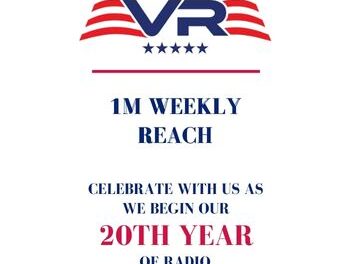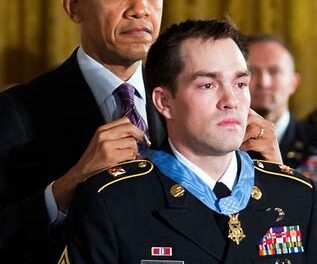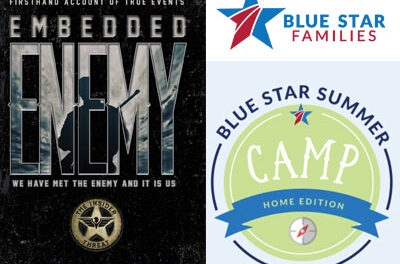
BARRIERS FOR VETERANS IN POST SECONDARY EDUCATION
Dr. Eric Fretz, a Faculty Lecturer at the University of Michigan, leads this panel in a conversation related to barriers for veterans in the pursuit of post secondary education.
- Ryan Pavel – CEO of Warrior Scholar Program
- R.J. Jenkins – Curriculum Designer at Columbia University Center for Veteran Transition and Integration
- Dr. Linda Euto – Associate Director | Research and Evaluation | Institute for Veterans and Military Families (IVMF) at Syracuse University
Barriers for Veterans in Post Secondary Education - May 22, 2022
Reducing Barriers for Veterans Pursuing Post Secondary Education
The Institute for Veterans and Military Families at Syracuse University published an article in 2020 stating “post-secondary education is the top resource needed by most veterans.” They also published interesting statistics in 2019 as follows:
Students using GI Bill benefits are more likely to be enrolled full time, with
- 10% of students enrolling in certificate programs,
- 27% enrolling in associate’s programs,
- 43% enrolling in bachelor’s programs, and
- 20% enrolling in graduate programs.
Citations for studies and opinions related to veterans and post-secondary education
- Post-secondary education is the top resource needed by most veterans. Euto, L., Maury, R., Armstrong, N., Stone, B., & Linsner, R. (2020). Top Resource Needs of Veterans and Active Duty Service Members. Institute for Veterans and Military Families at Syracuse.
- Students using GI Bill benefits are more likely to be enrolled full time, with 10% of students enrolling in certificate programs, 27% enrolling in associate’s programs, 43% enrolling in bachelor’s programs, and 20% enrolling in graduate programs. Institute for Veterans and Military Families & Student Veterans of America. (2019). Student Veterans: A Valuable Asset to Higher Education. Syracuse University.
- Community colleges are the preferred student veteran entry point into higher education. Evans, J. J., Pellegrino, L., & Hoggan, C. (2015). Supporting veterans at the community college: a review of the literature. The Community College Enterprise. Spring 2015, 47-65.
- 65% of student veterans enroll at low-graduation-rate institutions, compared to 51% of all students. Hill, C. B., Kurzweil, M., Pisacreta, E. D., & Schwartz, E. (2019). Enrolling More Veterans at Higher Graduation-Rate Colleges and Universities. Ithaka S+R.
- 62% of student veterans are first-generation college students. National Conference of State Legislatures. (2014, May 30). Veterans and College: State and Community Roles in Supporting College Completion for Veterans.
- In a 2006 study, Bermo, et. al identified three crucial steps to support first-generation college students: (1) Raising aspirations for college; (2) Navigating the college admissions process; (3) Easing the initial transition to college. Bermeo, A., Grigsby, M., Mortenson, T., Muraskin, L., Stokes, L., Tinto, V. & Upshaw, W. (2006). Straight from the Source: What Works for First-Generation College Students. The Pell Institute for the Study of Opportunity in Higher Education.
- In a 2014 study, Ford & Vignare noted key challenges college students face with respect to coursework, including: lack of knowledge regarding academia and academic culture; rusty study habits; difficulties balancing school and life. Ford, K. & Vignare, K. (2014). The evolving military learner population: a review of the literature. Journal of Asynchronous Learning Networks. 19(1), 7-30. DOI: 10.24059/OLJ.V19I1.503.

Dr. Eric Fretz – Guest Host on Veterans Radio
From www.umich.edu …
Eric Fretz is a graduate of the University of Michigan and a faculty lecturer who creates and delivers classes across campus (Psychology, Innovate Blue Entrepreneurship, School of Education, College of Engineering Center for Entrepreneurship). In addition to classes from the 100 to 600 level, he also delivers academic readiness classes for Student Veterans at U-M and other institutions locally and nationwide.
Please Give Us Your Feedback
Below is an area where you can rate this program on a 5-star rating system. You can also leave more detail in a comment section below the "Related Posts" section.
Sharing this post with your friends through social media is a way of sending "kudos" to the Veterans Radio team and their guests.
All feedback is appreciated as you, the audience, help us determine the programs we present.
Every Veteran has a story to tell.






